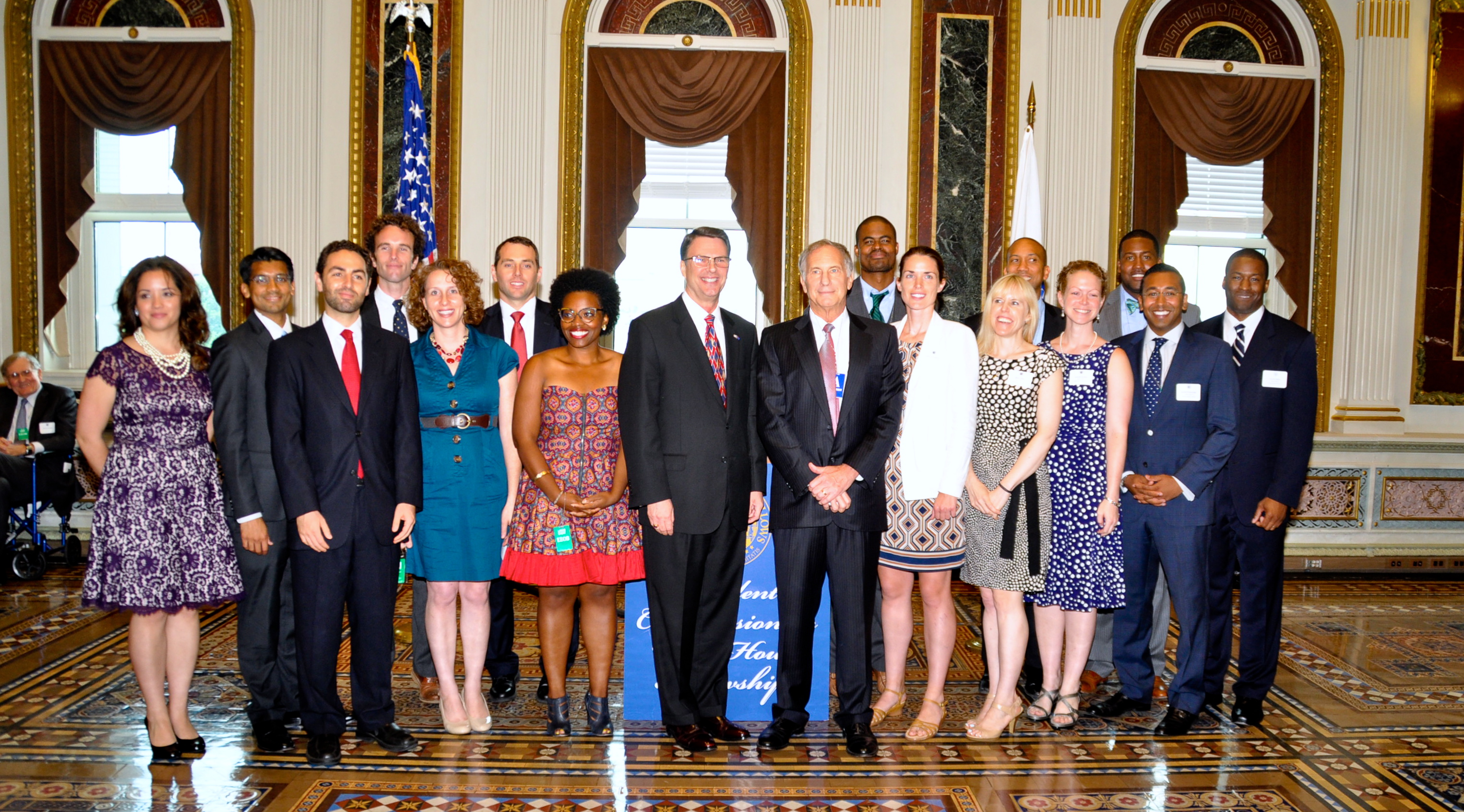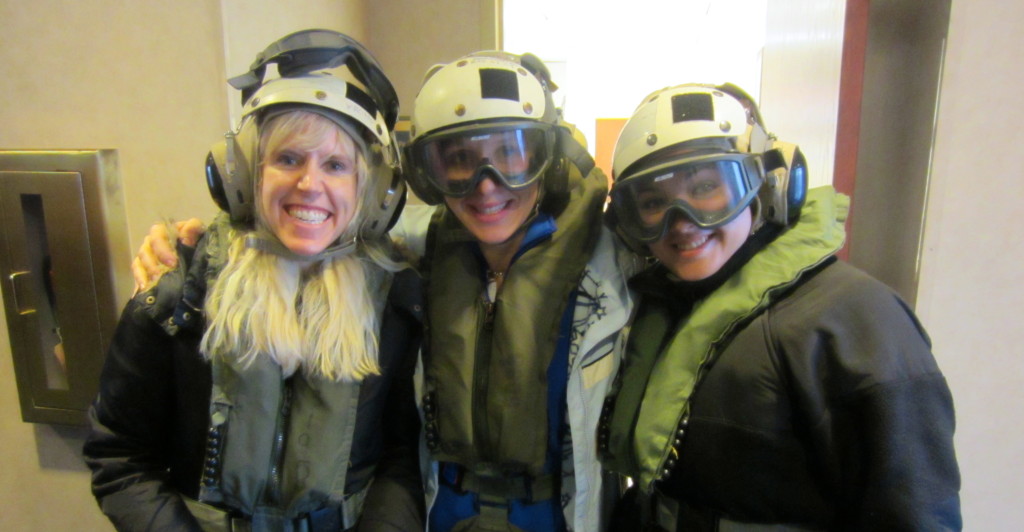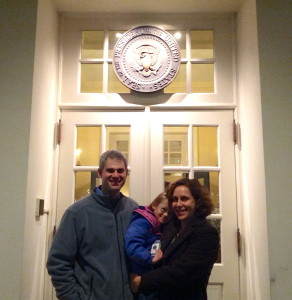
This year, the White House Fellows program is celebrating their 50th Anniversary. Founded in 1964 by Lyndon B. Johnson, the White House Fellows program is one of America’s most prestigious programs for leadership and public service. White House Fellowships offer exceptional young professionals first-hand experience working at the highest levels of the federal government in Washington, DC. Selected individuals typically spend one year working as a full-time, paid Fellow to senior White House Staff, Cabinet Secretaries and other top-ranking government officials. The purpose of the fellowship is to create a cadre of young leaders who have an understanding – gained first hand – of the challenges that our national government faces. In return for the Fellowship year, President Johnson expected the Fellows to “repay that privilege” when they left by “continuing to work as private citizens on their public agendas.” He hoped that the Fellows would contribute to the nation as future leaders.
To learn more about this highly competitive opportunity, we interviewed 2012-13 White House Fellow Bethany Rubin-Henderson, founder of the City Hall Fellows program, about her fellowship experience and fellowship application tips.
1. What inspired you to apply for the White House Fellowship?
I applied for the White House Fellowship seeking to connect with others who cared as passionately about public service as I did; seeking skills that would deepen my understanding of how to provide effective government service; seeking context to build a better, more persuasive case that government matters, in pursuit of my efforts to build the nascent movement to make public service priority number one for the next generation; and seeking a network to help expand that movement.
At the time I applied for the Fellowship, I was leading City Hall Fellows, the local government service corps I founded in 2007. The timing worked for me – City Hall Fellows was stable enough that I could step away without derailing it, and I was excited to try something new.

2. What is a typical week like for a White House Fellow?
There is no such thing as a typical week for a White House Fellow – it depends completely on your placement and the projects you are working on. My fellowship was a bit unusual in that I changed placements mid-year as the post-2012 election leadership changes shook out. I spent the first half of my fellowship in the office of the Secretary of the Interior and the second half in the White House in the Office of Cabinet Affairs. In both places, I worked on both short-term crisis-driven projects and longer-term strategic initiatives. Much of my time was spent in meetings with various agency or White House staff and leaders.
Roughly twice a week, my cohort gathered at the White House Fellows office for an off-the-record lunch conversation with a policy, government, or business leader. These lunches were a great opportunity to learn about leadership from folks on the ground. Depending on the year and the budget, Fellows also may take one or more policy trips. My year, we spent a week in Canada and a week in Philadelphia, and also stayed overnight on an aircraft carrier. The trips allowed us to explore US policy in depth, and specifically the relationship between the federal government and the places we visited. They were also great fun and a wonderful bonding experience with the other Fellows. We also had a decent number of after-hours events, both fun and professional. We had breakfasts and dinners with other public service programs, played basketball at the highest court in the land, and had dinners with White House Fellows Commissioners and Cabinet secretaries. Finally, once a month we did a group service project. Two of the most memorable were cleaning up an inner-city school field and preparing meals for the homeless. One important thing to know is that ALL program events are required, including after-hours ones.
One of the most unexpected treats of the program was learning from my military classmates. Virtually every cohort has at least a few military members. Six Fellows in my cohort were active duty or vets. Spending a year with them learning about and sharing in their lives was truly eye-opening.

3. What tips would you give others applying to the White House Fellowship?
Before applying, think long and hard about why you want to do this fellowship and why you want to do it now. Consider both how it will help your personal and professional growth and what you can bring to the table for your cohort and the government. Develop a clear vision for what you want to do afterwards, and how the fellowship fits into your overall career trajectory. The fellowship is a huge commitment of time. It requires you to step away from everything else in your professional life for 12 months, to participate in numerous after-hours and weekend activities, and you may not (and likely will not) end up working in your ideal office. This fellowship is not about giving you a platform to further a particular policy interest or expertise of yours – it’s about you serving in whatever capacity you’re needed. It’s not about getting perks of access or taking cool behind-the-scenes policy trips (though often you get to do a few of those) – it’s about you learning and contributing in whatever capacity you’re needed. It is incredible, unparalleled exposure to the inside of how our executive branch works from a very unique position. It is an extraordinary network of people – both your own cohort and alumni, not to mention your colleagues. It is a once-in-a-lifetime experience. But if you are dead-set on working in a particular agency or on a particular issue, this fellowship is not for you. If there are agencies or policy issues you would be absolutely opposed to working on, this fellowship also may not be for you.
Assuming I haven’t scared you off, the process is pretty simple. The first step is the written application. Be yourself, and be specific. Avoid platitudes, jargon, and generic language. The application isn’t very long. Utilize your recommendation letters to delve into other things you think application readers ought to know about you. It is also a good idea to use recommenders who can speak to different aspects of your life or career and who can share very specific stories and examples, to provide a more holistic picture of you (but please don’t have a family member write your rec letter!). For example, one of my recommenders wrote about the financial sacrifice my family made when I left big law to launch a nonprofit from scratch, and how he (a law firm client) was so impressed he ultimately joined my nonprofit’s Board of Directors. Several of my interviewers commented on the power of that recommendation letter.
If you are afforded an interview (only a small percentage of applicants are), the best way to prepare is to review your application carefully and practice concisely conveying your passion and reason for wanting the fellowship. Make sure you have a basic command of current geo-political issues, and get a good night’s sleep. Interviews involve numerous group components. Approach the other candidates as interesting, accomplished people you are lucky enough to get the chance to meet, not as the competition.
Most importantly, don’t be discouraged if you don’t get the fellowship. Typically, over 1,000 people apply and only 11-19 fellowships are awarded each year. There are far more qualified applicants than spots. It is not uncommon for someone to apply multiple times and then receive the fellowship. So if your heart is dead-set on it, apply again!
If you do decide to apply, good luck! The White House Fellowship truly is a once-in-a-lifetime experience.
Bethany Rubin Henderson is an award-winning social entrepreneur whose social impact career has spanned the public, private, and nonprofit sectors. She currently leads America SCORES and its award-winning flagship affiliate DC SCORES — which build neighborhood teams that empower kids growing up in high-poverty communities to lead healthy lives, be engaged students, and have the confidence and character to make a difference in the world. Prior to the Fellowship, Bethany founded the award-winning local government service corps City Hall Fellows, litigated as a big firm lawyer, worked in local government, and co-created Grow With Me Tee, a line of t-shirts that make it fun for families to track kids’ growth. Bethany and her husband relish the nonstop nature of their two (now tweenage!) kids, two careers, modern family life, but are still searching for a good night’s sleep.
© Victoria Johnson 2014, all rights reserved